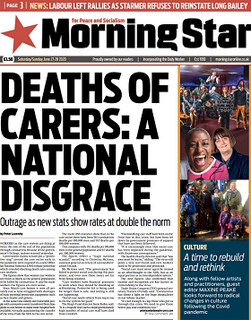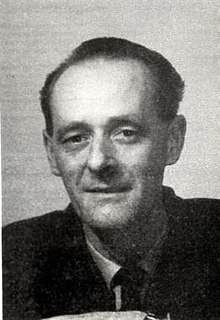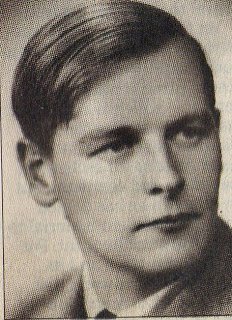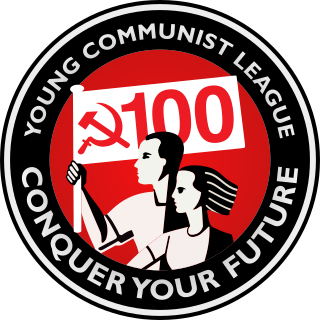Related Research Articles

The Morning Star is a left-wing British daily newspaper with a focus on social, political and trade union issues, and is both the largest and longest-running socialist newspaper in Britain. Originally founded in 1930 as the Daily Worker by the Communist Party of Great Britain (CPGB), ownership was transferred from the CPGB to an independent readers' co-operative in 1945. The paper was then renamed and reinvented as the Morning Star in 1966. The paper describes its editorial stance as in line with Britain's Road to Socialism, the programme of the Communist Party of Britain.

The Communist Party of Great Britain is a political group which publishes the Weekly Worker newspaper. The CPGB (PCC) claims to have "an internationalist duty to uphold the principle, 'One state, one party'. To the extent that the European Union becomes a state then that necessitates EU-wide trade unions and a Communist Party of the EU". In addition, it is in favour of the unification of the entire working class under a new Communist International. It is not to be confused with the former Communist Party of Great Britain, the Communist Party of Great Britain (Marxist–Leninist), or the current Communist Party of Britain.

The New Communist Party of Britain is a communist political party in Britain. The origins of the NCP lie in the Communist Party of Great Britain from which it split in 1977. The organisation takes an anti-revisionist stance on Marxist-Leninism and is opposed to Eurocommunism. After the fall of the Soviet Union the party was one of two original British signatories to the Pyongyang Declaration in 1992. It publishes a newspaper named The New Worker.
The Weekly Worker is a newspaper published by the Communist Party of Great Britain (CPGB-PCC). The paper is known on the left for its polemical articles, and for its close attention to Marxist theory and the politics of other Marxist groups. It claims an online readership averaging over 20,000 a week, but prints only 500 copies a week.
Straight Left was a left-wing newspaper published from 1979. The phrase was also the generic name given to a political faction of the Communist Party of Great Britain who disagreed with the leadership's emerging Eurocommunist politics, and were responsible for the production of the newspaper. The origins of this faction within the CPGB go back earlier, but it emerged under this name in 1977.

Andrew Rothstein was a British journalist. A member of the Communist Party of Great Britain (CPGB), Rothstein was one of the leading public faces of the British Communist movement, serving as a member of the CPGB's political apparatus and through a series of publications and translations of Marxist-related topics.

John Gollan was a leader of the Communist Party of Great Britain (CPGB).
The People's Press Printing Society (PPPS) is a readers' co-operative with the purpose of owning and publishing a left-wing, British, daily newspaper. The co-operative was established in 1945, with shares sold at £1. Originally the paper was titled the Daily Worker, but the publication was re-launched as the Morning Star in 1966.

George Matthews was a British communist activist and newspaper editor.
The Workers' Weekly was the official newspaper of the Communist Party of Great Britain, established in February 1923. The publication was succeeded by Workers' Life in January 1927 following a successful libel action against the paper. This was in turn replaced by The Daily Worker on the first day of January 1930.

Michael Joseph Hicks was a British politician, executive member of printers’ union SOGAT, and general secretary of the Communist Party of Britain.
Anthony Philip John "Tony" Chater was a British newspaper editor and Communist activist.
Idris Cox was a Welsh communist activist and newspaper editor.

The Communist Party of Britain (CPB) is a communist political party in Great Britain committed to Marxist–Leninist theory. The party emerged from a dispute between Eurocommunists and Marxist-Leninists in the Communist Party of Great Britain in 1988.
Jacob Gaster, known as Jack Gaster, was a British communist solicitor and politician.

The Young Communist League (YCL) was founded as the youth wing of the Communist Party of Great Britain from 1921 to 1988. Since 1991, the YCL has been the youth section of the Communist Party of Britain.

The Communist Party of Great Britain (CPGB) was the largest communist party in Great Britain between 1920 and 1991. Founded in 1920 through a merger of several smaller Marxist parties, the CPGB gained the support of many socialist organisations and trade unions following the political fallout of the First World War and the Russian October Revolution. Ideologically the CPGB was a socialist party organised upon Marxism–Leninist ideology, strongly opposed to British colonialism, sexual discrimination, and racial segregation. These beliefs led many leading anti-colonial revolutionaries, feminists, and anti-fascist figures, to become closely associated with the party. Many prominent CPGB members became leaders of Britain's trade union movements, including Jessie Eden, Abraham Lazarus, Ken Gill, Clem Beckett, GCT Giles, Mike Hicks, and Thora Silverthorne.
Michael Costello is a former British communist activist.

Far-left politics in the United Kingdom have existed since at least the 1840s, with the formation of various organisations following ideologies such as Marxism, revolutionary socialism, communism, anarchism and syndicalism.

Graham Stevenson was a British communist, trade union leader, and historian who specialised in the history of British socialist and labour activist biographies. He led a career as one of the most influential trade union leaders in Britain, becoming the national secretary of the TGWU IN 1999, and as a founder and later president in 2009 of the European Transport Union Federation, he helped organise strikes across European docks in 2003, forcing the European Union to stall privatisation plans. Between 2007 and 2008, Stevenson played a key part in the negotiations that formed Unite the Union, the largest trade union in the United Kingdom. He also served on the Executive and Political Committee of the Communist Party of Britain (CPB), and served as the treasurer of the Marx Memorial Library from 2013 to 2019.
References
- ↑ Chacko, Ben (13 April 2019). "John Haylett – a giant of the Morning Star who retires after 35 years' service". Morning Star. Retrieved 19 April 2019.
- ↑ "Still flying the red flag". The Independent. 23 May 2005. Retrieved 11 April 2019.
- ↑ "Mary Rosser-Hicks". Daily Telegraph. 10 January 2011. ISSN 0307-1235 . Retrieved 11 April 2019.
- ↑ Deeson, Martin (23 May 2005). "Still flying the red flag". The Independent on Sunday. Retrieved 16 September 2017.
- ↑ "Morning Star Strike (Channel 4 News)". 28 October 2006. Retrieved on 5 December 2015 – via YouTube.
- ↑ 'Official communist' opposition Weekly Worker 11.10.2000
- ↑ "Morning Star strike (BBC World)". 27 October 2006. Retrieved on 5 December 2015 – via YouTube.
- ↑ Deeson 2005